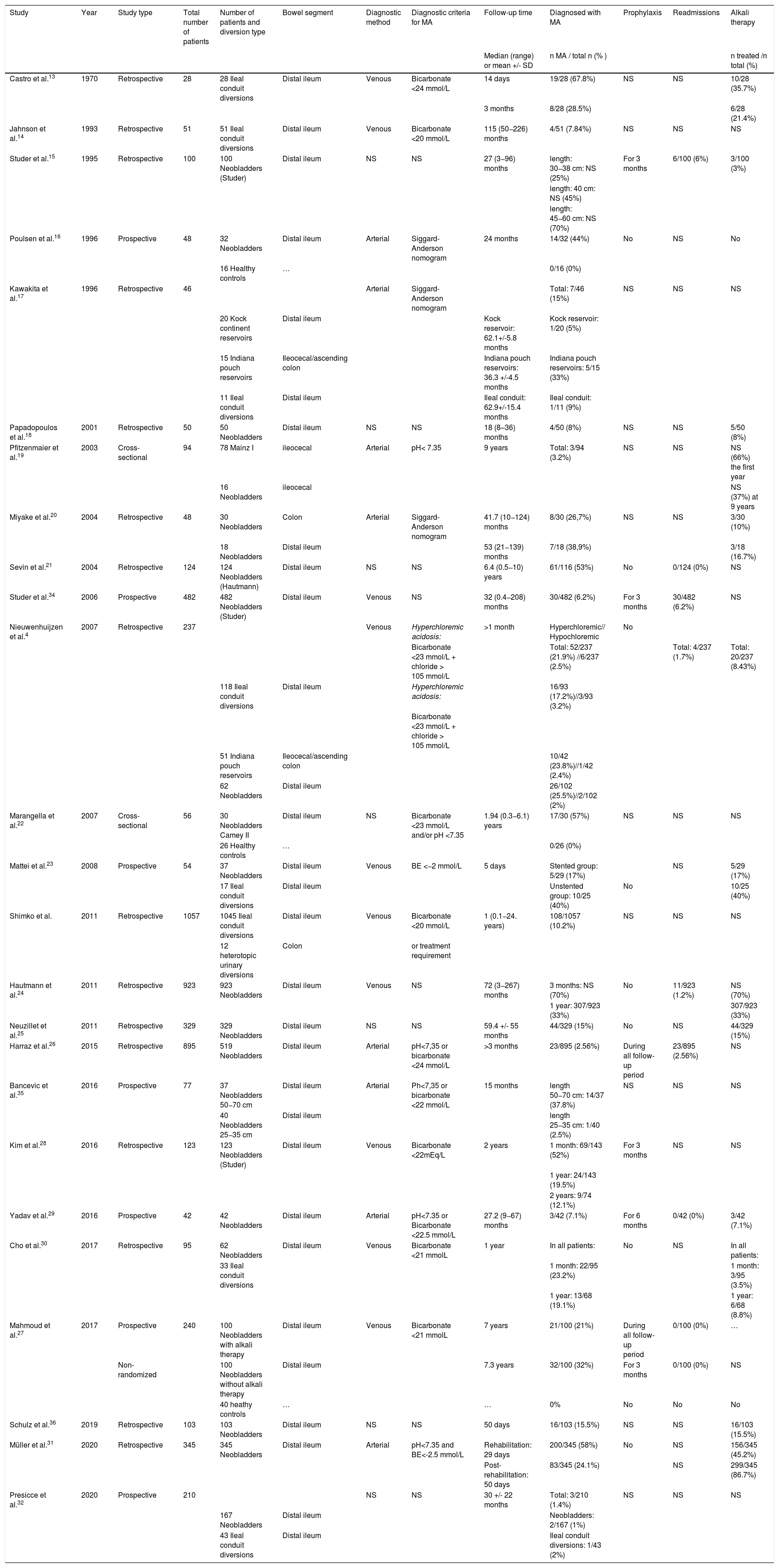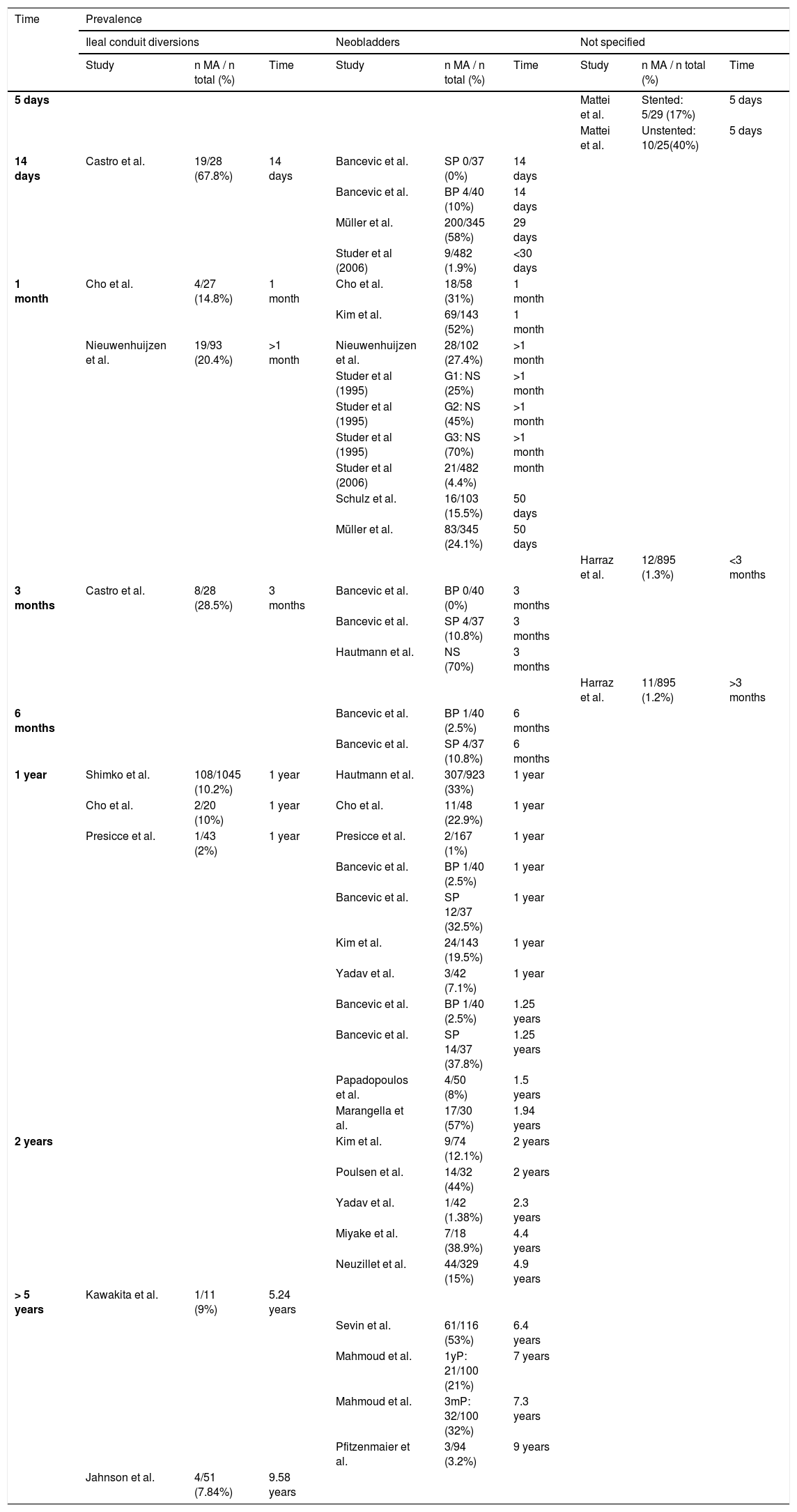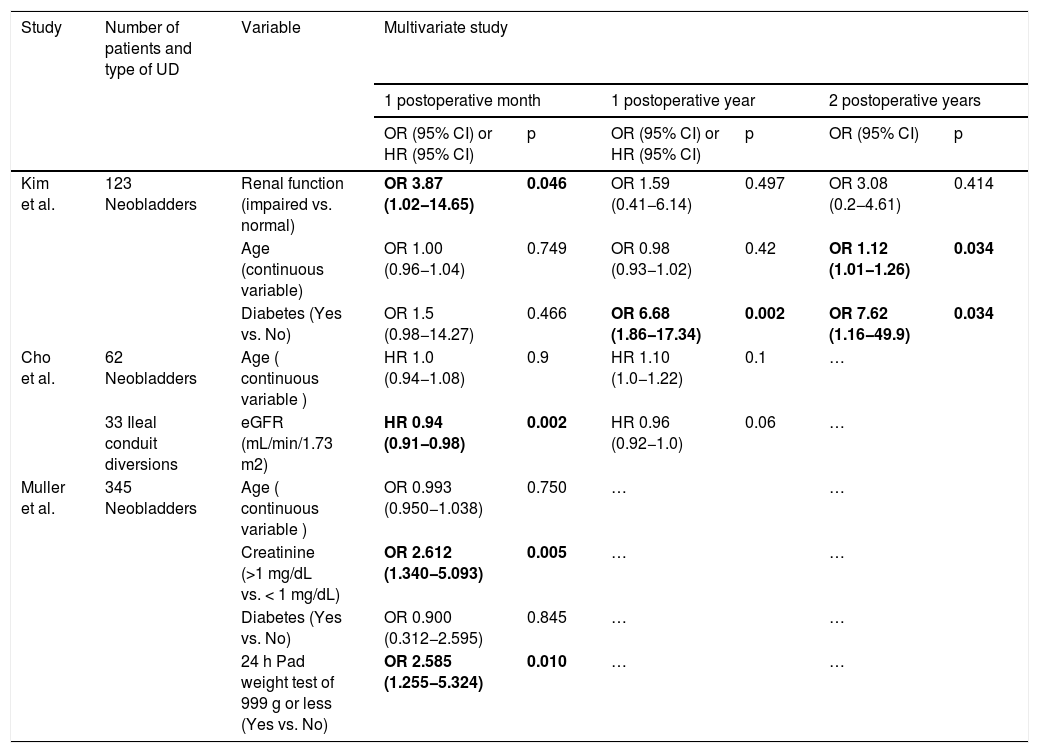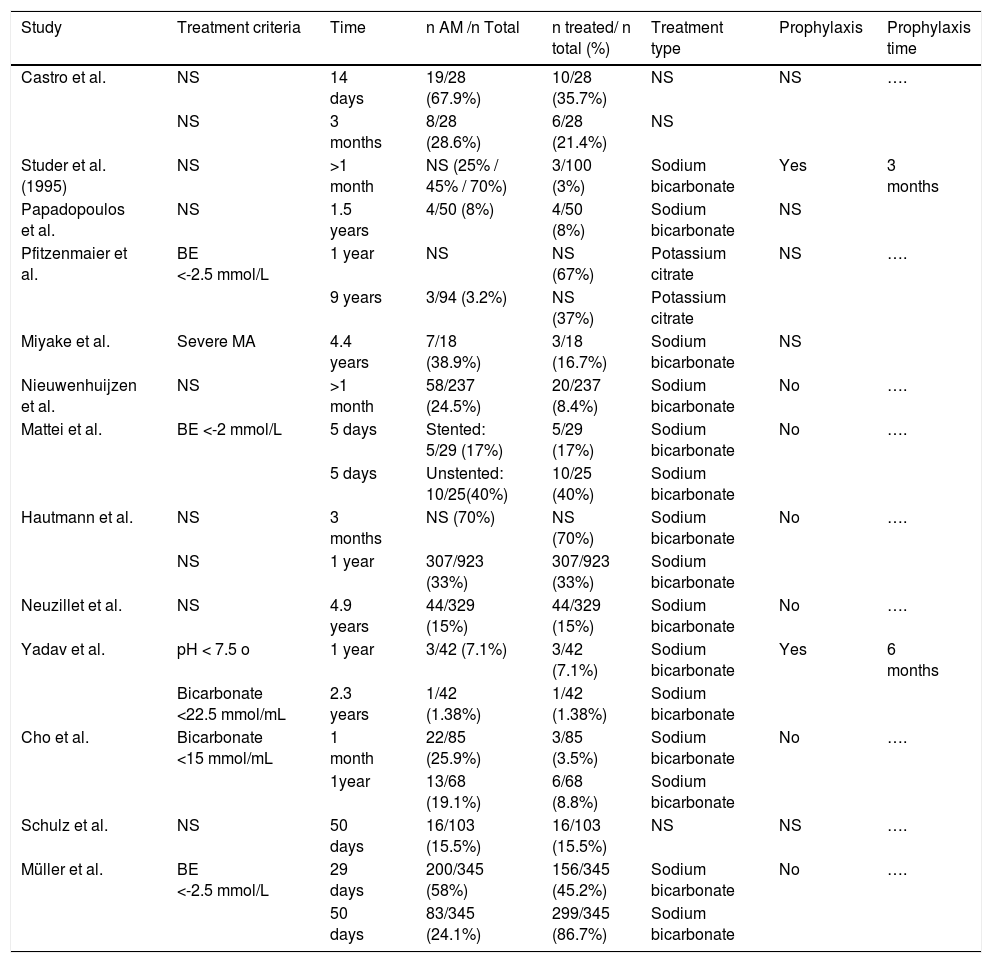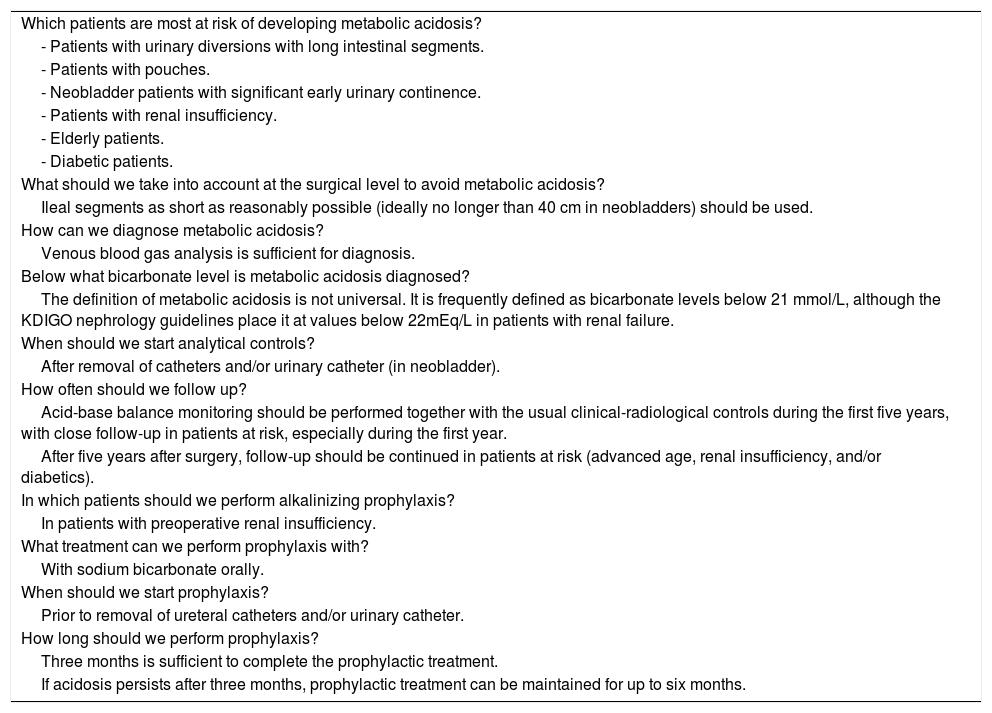Urine contact with the mucosa of the urinary diversion (UD) after radical cystectomy (RC) produces different ion exchanges that favor the development of metabolic acidosis (MA). This phenomenon is a frequent cause of hospital readmission and short/long-term complications.
We performed a systematic review of MA in RCs with ileal UD, analyzing its prevalence, diagnosis, risk factors and treatment. We systematically searched Pubmed® and Cochrane Library for original articles published before May 2022 according to PRISMA guidelines. A total of 421 articles were identified. We selected 25 studies that met the inclusion criteria involving 5811 patients. Obtaining precise data on the prevalence of MA is difficult, largely due to the heterogeneity of the diagnostic criteria used given the diversity of studies analyzed. Development of MA is multifactorial. In the early period, MA is more prevalent in patients with UD with longer ileal segments, better urinary continence, and impaired renal function. Age and diabetes are risk factors associated with MA in later periods. MA is the most common cause of second or more hospital readmissions. Prophylaxis with oral bicarbonate for three months in patients at risk could improve these results. Although MA after ileal UD is a well-known condition, this review highlights the need to implement homogeneous criteria for the diagnosis, follow-up, and treatment, in addition to protocolizing prevention/prophylaxis strategies in patients at risk.
El contacto de la orina con la mucosa de la derivación urinaria (DU) tras la cistectomía radical (CR) produce diversos intercambios iónicos que promueven el desarrollo de la acidosis metabólica (AM). Esta alteración es una causa frecuente de reingresos y complicaciones a corto/largo plazo. Realizar una revisión sistemática sobre la AM en CRs con DUs ileales, analizando su prevalencia, diagnóstico, factores de riesgo y tratamiento. Realizamos una revisión de la literatura de artículos publicados en Pubmed® y Cochrane Library antes de mayo de 2022 siguiendo las recomendaciones PRISMA. Se identificaron 421 artículos, de los cuales 25 cumplieron los criterios de inclusión sumando un total de 5811 pacientes. Los estudios analizados demuestran mucha heterogeneidad en los criterios analíticos de diagnóstico y tratamiento utilizados, pudiendo sesgar los resultados de prevalencia. El desarrollo de la AM es multifactorial, siendo más frecuente su aparición durante el periodo postoperatorio temprano, especialmente en DUs con segmentos ileales más largos, con mayor continencia urinaria y en pacientes con insuficiencia renal. La edad avanzada y la diabetes son factores de riesgo relacionados en periodos más tardíos. La AM es la causa más frecuente de segundos o más reingresos hospitalarios. La realización de profilaxis alcalinizante durante tres meses en pacientes de riesgo podría mejorar estos resultados. Aunque la AM en DUs ileales es una alteración conocida, esta revisión revela la necesidad de implementar criterios homogéneos de diagnóstico, monitorización y tratamiento además de protocolizar estrategias de prevención/profilaxis en pacientes de riesgo.







